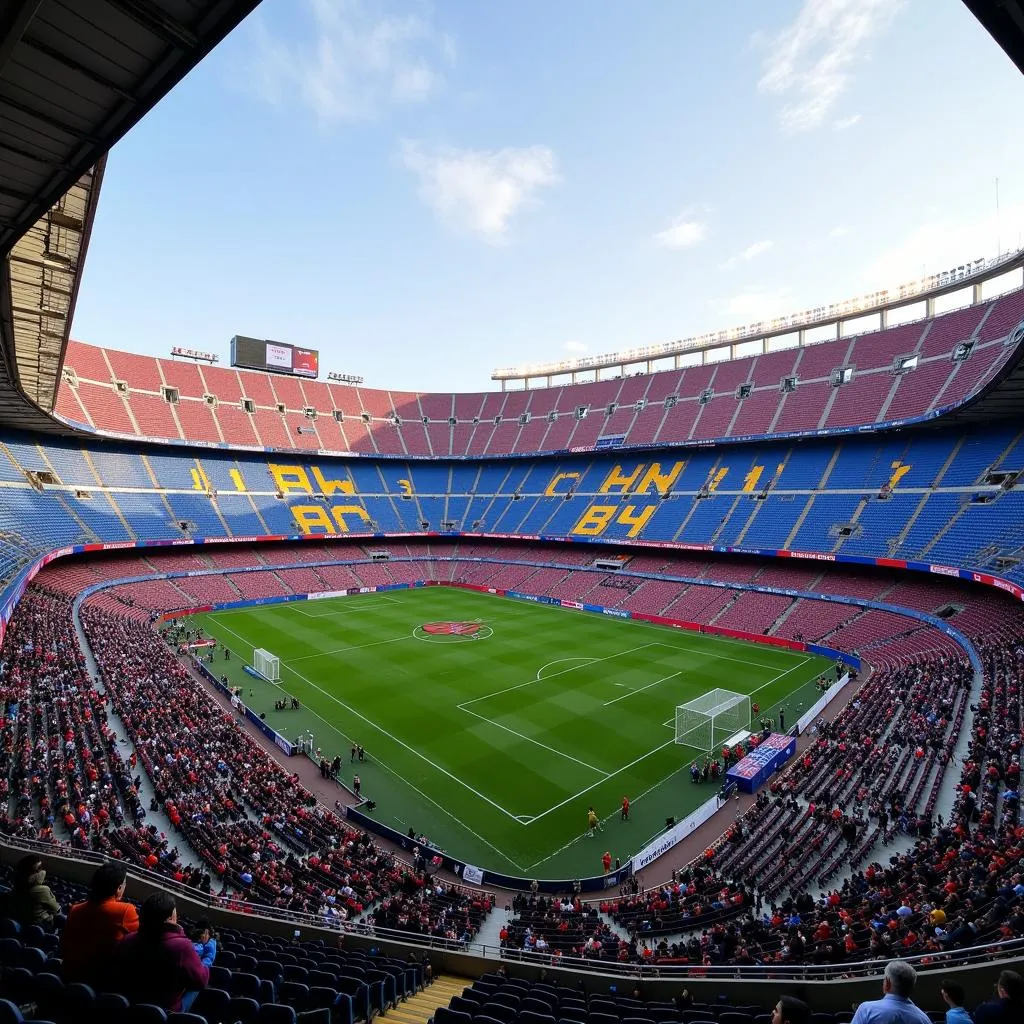Barcelona, the vibrant capital of Catalonia, is renowned for its rich history, stunning architecture, and captivating culture. But beyond the tourist attractions, Barcelona also boasts a world-class football club that has captivated audiences globally.
In this comprehensive guide, we’ll explore the fascinating world of FC Barcelona, delving into its origins, its legendary players, its trophies, and its influence on the world of football. We’ll also examine the club’s impact on the city of Barcelona and its role in shaping Catalan identity.
The Birth of a Legend: FC Barcelona’s Early Years
FC Barcelona was founded in 1899 by a group of Swiss, English, and Catalan football enthusiasts who sought to establish a club that reflected the values of Catalan society. From its inception, Barcelona embraced a philosophy of playing beautiful football, known as “tiki-taka,” that emphasized possession, intricate passing, and fluid movement.
The club’s early years were marked by a strong sense of Catalan identity, as it represented a symbol of resistance against Spanish rule. This cultural significance contributed to its widespread popularity, not only in Barcelona but throughout Catalonia.
The Golden Era: The 1990s and the Rise of Dream Team
The 1990s witnessed a transformative era for FC Barcelona, led by the visionary coach Johan Cruyff. The club’s iconic “Dream Team” era saw the emergence of legendary players like Hristo Stoichkov, Romario, and Michael Laudrup, who redefined the club’s style of play and dominated both domestic and European football.
The Dream Team era cemented Barcelona’s status as a global football power, inspiring a generation of players and fans. The club’s success on the pitch further strengthened its connection with Catalan culture and made it a symbol of the region’s pride.
The Messi Era: A Legacy of Dominance and Innovation
The arrival of Lionel Messi in 2004 ushered in a new era of unparalleled dominance for FC Barcelona. Messi’s exceptional talent, alongside the emergence of other world-class players like Xavi Hernandez and Andres Iniesta, transformed the club into a near-unstoppable force.
During this period, Barcelona won an unprecedented number of trophies, including multiple La Liga titles, UEFA Champions League trophies, and Copa del Rey titles. Messi, widely regarded as the greatest footballer of all time, became synonymous with Barcelona and established himself as a global icon.
Beyond the Pitch: Barcelona’s Impact on the City and Catalan Culture
FC Barcelona’s influence extends far beyond the realm of sport. The club’s success has played a significant role in shaping the city of Barcelona’s identity and its appeal to tourists from around the world. The Camp Nou stadium, the club’s home ground, is a major tourist attraction and a source of pride for the city.
Moreover, Barcelona’s commitment to social responsibility and its active involvement in community projects have further solidified its connection to the city and its people. The club’s Foundation, established in 1994, works to promote social inclusion and fight poverty through various initiatives.
The Future of FC Barcelona: A New Era of Transformation
After Messi’s departure in 2021, FC Barcelona entered a new chapter in its history. The club is facing a new set of challenges, seeking to rebuild its squad and regain its status as a dominant force in European football.
Despite these challenges, Barcelona remains a powerful symbol of Catalan identity and a source of pride for its fans worldwide. The club’s commitment to playing beautiful football and its dedication to social responsibility continue to inspire generations of players and fans.
Frequently Asked Questions:
Q1: How many La Liga titles has FC Barcelona won?
FC Barcelona has won 27 La Liga titles, making them one of the most successful clubs in Spanish football history.
Q2: Who are some of the most famous players to have played for FC Barcelona?
Some of the most famous players to have played for FC Barcelona include Lionel Messi, Johan Cruyff, Xavi Hernandez, Andres Iniesta, Ronaldo, and Ronaldinho.
Q3: What is the Camp Nou known for?
The Camp Nou is known for its colossal size, making it the largest football stadium in Europe. It’s also a significant landmark in Barcelona, attracting millions of visitors each year.
Q4: How does FC Barcelona promote social responsibility?
FC Barcelona actively engages in social responsibility initiatives through its Foundation, focusing on promoting social inclusion, fighting poverty, and supporting education and healthcare.
Q5: What are some of the challenges FC Barcelona faces today?
FC Barcelona faces challenges such as financial constraints, squad rebuilding after the departure of Messi, and the increasing competition in European football.
Conclusion
FC Barcelona, a global football powerhouse, is deeply intertwined with the city of Barcelona and Catalan culture. From its origins as a symbol of Catalan resistance to its dominance in European football, Barcelona has become a source of pride and inspiration for millions of fans around the world.
The club’s commitment to playing beautiful football, its social responsibility initiatives, and its enduring legacy on the pitch continue to captivate audiences, making it a true icon of the sport.
